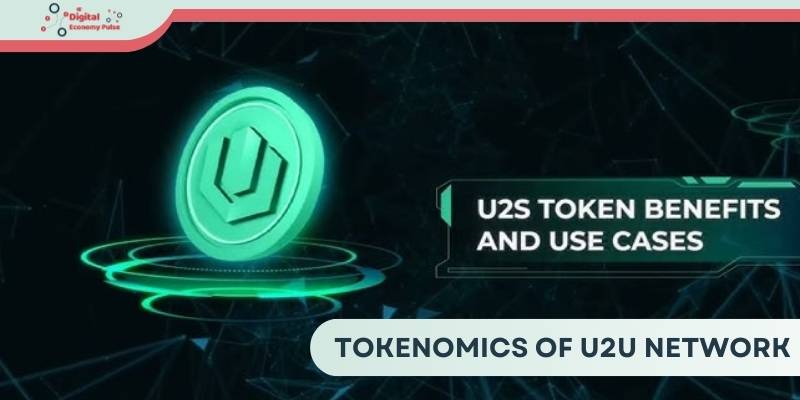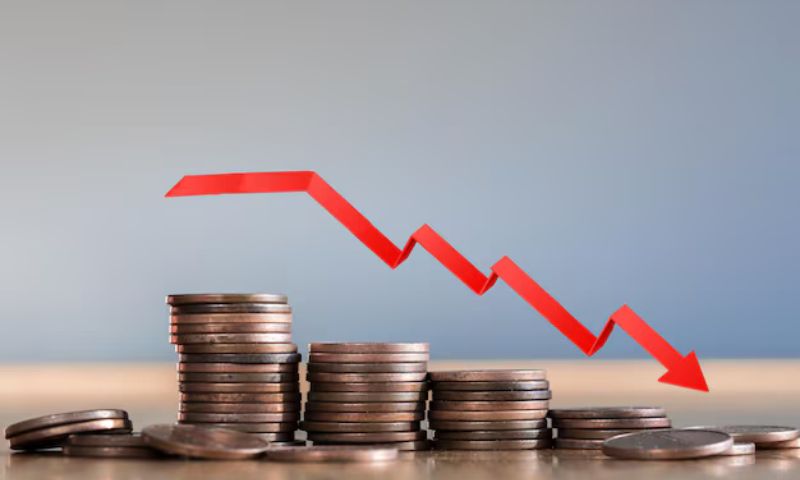Money talks, but in developing economies, it’s starting to chat through a screen. See, the Rise of Fintech in developing economies is not just a buzzword; it’s the new beat at which financial hearts pulse. This surge is like a Robin Hood of tech, reaching out to people who banks have left out. With a tap on the phone, folks who never had a bank now save cash and pay bills. It’s a fresh era, friends, where your street vendor could be a tap away from a loan, and a small business, a click away from growth. Dive in as I unpack this digital wallet of opportunities unfolding before us.
Fintech Growth and Its Driving Factors in Emerging Markets
The Role of Mobile Banking in Financial Services Expansion
Mobile banking is making life easier for millions. It lets people send, get, and save money fast. No need for a bank nearby. This helps many who once had no bank at all. More people can now buy and sell things with just their phone. It’s a big deal for small towns far from cities. Friends and family send money with a few taps. This change is huge for growth in places that are just starting to use more tech.
Mobile banking is not just a fad. It’s a real change in how we deal with money. It all started with simple texts. People could send money over their phones. Now, it’s grown. Even in far-off places, a phone is all you need for banking. This is thanks to fintech firms that saw a big chance. They saw that many people had phones but not bank accounts. They worked to fix this. Now, even a farmer in a small village can use a phone to pay bills. No long trips to the bank needed.
With these steps, more people are entering the money system. They can now save money, make plans for the future, and feel safe knowing their money is okay. This is what we call financial inclusion. And it is vital for making lives better in these parts of the world.
Catalyzing Digital Financial Services through FinTech Innovations
Fintech is not just about banking. It is also building new ways to use money. Take e-payment systems. They make buying and selling smooth and fast. No cash needed. Businesses get paid right away. Customers enjoy the ease. It works well for everyone.
Digital money services are booming, thanks to fintech startups. These young companies are bold. They try new things to make money move like never before. They offer ways to lend money to each other without big bank fees. They use the net to tie people around the world to money services. Now, someone in a small town can get a loan from miles away. This is peer-to-peer lending, and it’s growing fast.
Many are also watching the rise of digital wallets. These wallets keep your money safe online. It’s easy to pay or get paid through apps on your phone. You can shop online or send money to a friend in a snap.
In Africa, for example, fintech innovations are booming. Firms are using tech like blockchain in banking. This keeps money safe and lets it move without trouble. It’s a clever use of the tech that powers things like cryptocurrency. Africa’s young people are ready and eager for these changes.
Cashless transactions are also on the rise. More people are tapping phones to pay. There’s less need to carry money around, which is safer too. This trend is tied to the growth of e-commerce. More buying online means more need for e-payment systems. They go hand in hand.
Fintech is even helping send money across borders. Digital transfers let workers send money home with less cost. This help reaches families faster. Fintech stands as a bridge, linking lives that are worlds apart.
As a fintech expert, I see how tech is a tool for growth. It helps small businesses and people just as much as big ones. With each fintech step, new doors open. And every new door means a better chance for all.

Accelerating Financial Inclusion through Fintech Solutions
Extending Access to Mobile Money and E-Payment Systems
In Africa, many folks don’t have a bank. But, everyone has a phone, right? So, FinTech comes in with a cool idea: let’s make the phone a bank! This is where mobile money shines. It lets you send cash, get paid, and buy things with just a few taps on your phone.
You don’t have to travel far or wait in long lines. And even if you live in a small village, you can still use your phone to pay for stuff. This is big because now, everyone can be part of the money world, not just the ones living in big cities.
What’s even more awesome is e-payment systems. They help stores and businesses make sales without cash. It’s super quick and safe. This means people can buy and sell things over the internet, which helps them make more money and grow their businesses.
But this isn’t just about buying and selling. It’s also about staying safe from theft and not losing money. You don’t have to carry cash around, which is a big relief for many.
Overcoming Regulatory Challenges to Foster Inclusive Growth
Now, this all sounds great, but there’s a tricky part. Every country has its own rules when it comes to money. And sometimes, these rules can slow things down. But here’s where I come in. I work with FinTech startups to understand the rules and find ways to make sure we can all get the benefits of mobile money and e-payments.
We talk with government folks and explain how FinTech can make life better for everybody. We show them that with the right rules, we can help people save and grow money, which is good for the whole country. When more people can use these services, they can start small businesses, which means more jobs and a better life for everyone.
It’s not always easy, but we’re making progress. We’re seeing rules that are more friendly for FinTech. This helps startups to create new ways for people to handle their money. And guess what? When more people use mobile money, we all win because the economy gets better.
Using FinTech is like adding more lanes to a highway. It lets more people drive on the road to wealth. And the cool part is that these solutions aren’t just good for the wallet. They’re good for the heart too because they help make everyone’s lives better.
If we keep this up, folks who never could before will be able to save for school or a new home, start their own business, and even protect themselves with insurance, all thanks to FinTech. It’s amazing how a simple phone can open up so many doors, don’t you think?

The Intersection of Technology and Financing for SMEs
Peer-to-Peer Lending and Crowdfunding Platforms as Avenues for SME Financing
Small businesses are the heart of any economy. They create jobs, serve our communities, and bring fresh ideas to life. But often, they struggle to find money to grow. Banks can say no and the paper trail is too long. Here is where fintech shines the brightest. Peer-to-peer lending platforms and crowdfunding have changed the game. They help our local heroes, the small business owners.
How do peer-to-peer lending platforms work for small business financing? Peer-to-peer lending connects people who have money with those who need it. It cuts the bank line and makes lending fast and direct. Businesses can get the funds they need, while investors can find new chances to earn from their savings.
Crowdfunding helps too, but in a different way. It lets a crowd of people put small amounts of money together to back a big idea. Imagine a baker raising money for a new oven, or a coder building a fresh app. They share their dreams online, and those who believe chip in. Beyond funds, they also get loyal fans and early customers.
Both these paths offer faster, simpler ways for small businesses to get cash. They don’t need collateral, just a good story and a solid plan. This means more business ideas can turn into real-life shops, services, or products.
The Impact of Credit Scoring Algorithms on Small Business Loans
What about those who still need a loan in the old-fashioned way? Banks and lenders are now smart. They use credit scoring algorithms. But what is a credit scoring algorithm? It’s a tech tool that looks at a bunch of data, like how you pay bills or what you earn. Then it says if you’re safe to lend money to. Before, without enough credit history, a small business might miss out on a loan. Now, these new tech tools can look at how you run your business. They can see your cash flow and sales info to decide.
Algorithms help lenders take a quicker and smarter risk on a business. This means even newer businesses can get a fair shot at a loan. It also helps more people see they can start something of their own. Fintech is not just about digital wallets or mobile apps. It’s a way to make dreams come true by breaking down money walls.
Credit scores made by algorithms also mean loans can be more fair. Everyone gets rated by the same rules. This levels the field and cuts bias. So fintech is like a friend to small businesses. It helps them to stand tall and get a chance to win.
With tech at their side, small businesses in our towns and cities can now reach for the stars. They can light up our economies, offer more jobs, and bring their big ideas to us all. Fintech growth in rising markets like ours helps everyone. It’s what will push us forward, today and tomorrow.

Emerging Trends and Future Outlook of Fintech in Developing Economies
The Integration of Blockchain and Big Data Analytics in Financial Technology
Let’s dive deep into how cool things like blockchain are changing banks and money in lots of places. First, what is blockchain in banking? It’s like a super-safe way to keep and send money using the internet. Imagine it like a magic book that no one can mess up, and everyone can trust.
In places that are still growing, folks now spot fake money stuff real fast. They can also lend money safely. And the bank fees? They go way down. This means even people with not much cash can now do bank stuff without paying too much.
Big data is also super important. This means looking at tons of info to make smart choices. Banks use it to know what you need, even before you ask! They see what you buy and offer deals just for you. It also helps find who needs a loan and can pay back without trouble.
Preparing for a Cashless Economy: Digital Wallets and Contactless Payments Adoption
Now, get ready for a world with less cash! What’s a digital wallet? Think of it as a pocket on your phone where your money lives. You tap your phone and zap – you paid for stuff!
In many places, people are already saying bye-bye to cash. They use their phones to buy stuff even at small shops. This means they don’t need to carry money around, which is safer and super easy.
But there are some tricky bits too. Not everyone has a phone yet. And sometimes, if the internet is bad, paying with a phone can be hard. People also have to learn how it works, which takes time.
We are also seeing more phones that you just hold close to a machine to pay – no touching! This is really good to stop germs from spreading, which is super important, right?
In developing places, as more people use phones for paying, we’ll see big changes. Shops and services will be all about digital money. This will help everyone, especially small businesses and folks who earlier couldn’t get to banks easily.
All this fintech stuff is making life better for loads of people. Money is moving fast, safe, and without costing a lot. And that’s just the start. Wait till you see what’s coming next!
In this post, we explored fintech’s exciting rise in emerging markets. We saw how mobile banking is making financial services more widespread. Innovations in fintech are sparking digital financial tools for everyone.
We then looked at how fintech helps more people use mobile money and e-payment systems. Even with tough rules, fintech’s creative solutions are pushing for growth that includes everyone.
We also learned how tech helps small and medium businesses. Platforms for lending from person to person and funding from crowds offer fresh ways to get money. Better credit scoring now means fairer loans for small companies.
Lastly, we talked about what’s coming in fintech. Using blockchain and analytics from big data changes the game. And with digital wallets and payments without contact, we’re heading toward a world without cash.
I believe fintech has a strong future in developing economies. It opens doors for people and businesses. Staying ahead of these changes means we can make the most of new chances. Keep an eye on fintech—it’s changing our world, one transaction at a time.
Q&A :
How has the rise of fintech impacted developing economies?
The advent of fintech (financial technology) in developing economies has revolutionized the way individuals and businesses access financial services. It has led to increased financial inclusion by providing services to the underbanked population, lowering the costs of transactions, and fostering the development of innovative financial solutions tailored to local needs.
What are the drivers behind the growth of fintech in developing countries?
Several factors drive the growth of fintech in developing economies, including widespread mobile phone adoption, increasing internet penetration, supportive government policies, and a younger, tech-savvy population. The demand for convenient, affordable, and accessible financial services has also played a significant role in the surge of fintech solutions.
What are some challenges fintech faces in developing economies?
Although fintech is growing rapidly in developing countries, it faces challenges such as regulatory hurdles, cybersecurity concerns, and a lack of infrastructure. Additionally, the complexity of reaching a population with varying degrees of financial literacy and trust in digital services poses a significant obstacle for fintech companies operating in these regions.
How does fintech contribute to financial inclusion in developing economies?
Fintech initiatives have been pivotal in advancing financial inclusion by providing access to banking services, microloans, peer-to-peer lending, and digital payment platforms to those who previously lacked access to traditional banking. These innovative financial solutions enable low-income individuals and businesses to participate more actively in the economy.
What is the future outlook for fintech in developing economies?
The future outlook for fintech in developing economies is promising, with expectations for continued growth, innovation, and investment. As more people get online and become familiar with digital services, and as governments push for greater financial inclusion, fintech is likely to keep playing a crucial role in the economic development of these regions.



